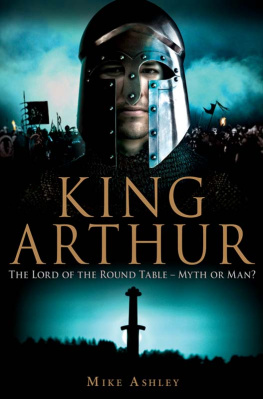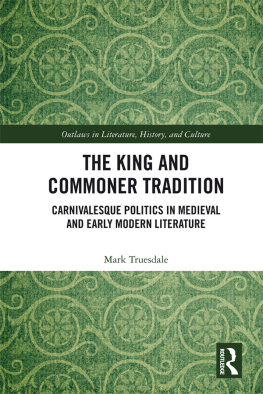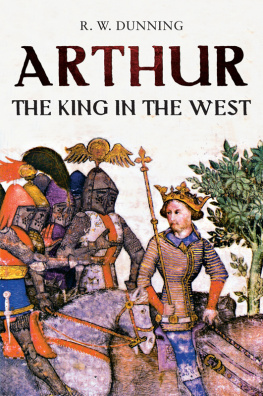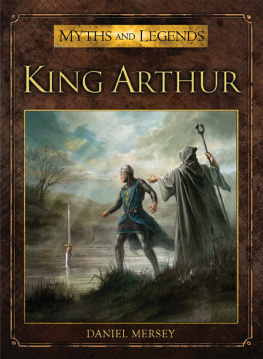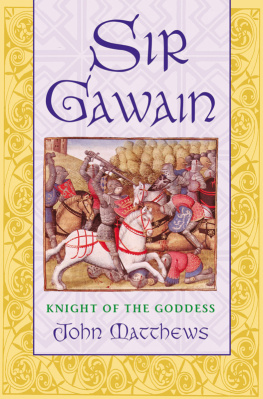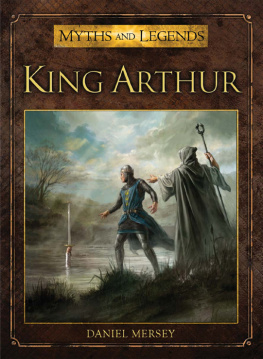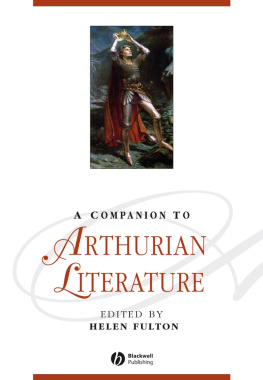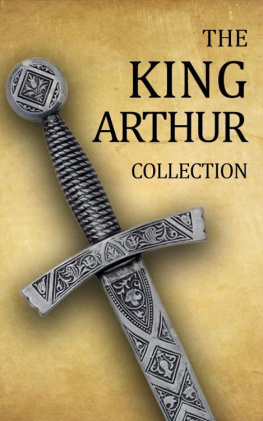Routledge Revivals
Jaufre
This translation, first published in 1992, presents one of the most memorable medieval ballads, largely because it contains a number of surprises and falsified expectations.
Jaufre, the hero, arrives at the court of King Arthur with a total and nave faith in the King and his ability to effect a total transformation in his followers by inducting them into the order of knighthood. As his quest proceeds, he learns the mistake in his idealised view of chivalry and his uncompromising view of pure justice, untempered by mercy. By charting the choices Jaufre makes in military and amorous encounters and the effectiveness of his responses to social trials and temptations, the audience discerns the route to independent adulthood, prestige and virtue, as the poet conceives of them. This fascinating reissue will be of particular value to students and academics researching the concepts typically explored within medieval ballads and romances.
Jaufre
An Occitan Arthurian Romance
Translated by
Ross G. Arthur
First published in 1992
by Garland Publishing Inc.
This edition first published in 2014 by Routledge
2 Park Square, Milton Park, Abingdon, Oxon, OX14 4RN
and by Routledge
711 Third Avenue, New York, NY 10017
Routledge is an imprint of the Taylor & Francis Group, an informa business
1992 Ross G. Arthur
The right of Ross G. Arthur to be identified as translator of this work has been asserted by him in accordance with sections 77 and 78 of the Copyright, Designs and Patents Act 1988.
All rights reserved. No part of this book may be reprinted or reproduced or utilised in any form or by any electronic, mechanical, or other means, now known or hereafter invented, including photocopying and recording, or in any information storage or retrieval system, without permission in writing from the publishers.
Publishers Note
The publisher has gone to great lengths to ensure the quality of this reprint but points out that some imperfections in the original copies may be apparent.
Disclaimer
The publisher has made every effort to trace copyright holders and welcomes correspondence from those they have been unable to contact.
A Library of Congress record exists under LC control number: 91045059
ISBN 13: 978-1-138-01853-2 (hbk)
ISBN 13: 978-1-315-77749-8 (ebk)
JAUFRE
An Occitan Arthurian Romance
translated by
ROSS G. ARTHUR
Copyright 1992 by Ross G. Arthur
All rights reserved
Library of Congress Cataloging-in-Publication Data
Jaufre (Provenal romance). English.
Jaufre : an Occitan Arthurian romance / translated by Ross G. Arthur.
p. cm. (Garland library of medieval literature; v. 88. Series B)
Includes bibliographical references.
ISBN 0815304064
1. Romances, ProvenalTranslations into English. 2. Arthurian romances. I. Arthur, Ross Gilbert, 1946. II. Title. III. Series: Garland library of medieval literature; v. 88.
PC3328.J3A211992
849'12dc20
9145059
CIP
Printed on acid-free, 250-year-life paper
Manufactured in the United States of America
Contents
Introduction
Manuscripts, Editions, Translations
Jaufre survives in two complete manuscripts, Paris, Bibliothque Nationale, franais 2164 (known as A), ca. 1300, and Paris, Bibliothque Nationale, franais 12571, (known as B), by an early fourteenth-century Italian scribe; these may be supplemented by two selections in fourteenth-century anthologies and two thirteenth-century leaves used in bindings of other works.
In the first volume of his Lexique roman (1838), Raynouard published an abbreviated (ca. 8900 lines) version of the poem, based on MS B with some emendations from A; Breuers 1925 edition is complete, but also based on MS B. Brunels edition (1943), using A as a base but incorporating a number of fairly lengthy passages found only in B and keeping Bs lineation, is followed here, and should be consulted for fuller information concerning the manuscripts (1: xixxxxiv) and the language of the poet (1: livlxiv) and of the scribes (1: lxvlxxi, and 2: vxii). An edition of the poem, slightly modified from Brunels text, was published in 1960 by Nelli and Lavaud, with a facing page modern French translation.
Two Renaissance adaptations of Jaufre survive, one in French and one in Spanish. Claude Platin shuffled together the events of Jaufre and of Renaut de Beaujeus Le Bel Inconnu into a lengthy prose work entitled Lhystoire de Giglan filz de Messire Gauvain qui fut roy de Galles et de Geoffroy de Maience son compaignon, transforming the son of the otherwise unknown Dozon into the son of Doon de Maience. The plot of Jaufre is kept basically intact, although there are some interesting omissions and abbreviations and, occasionally, new scenes which offer a sixteenth-century perspective on the poem. In Spain, a greatly modified version of the story appeared as Cronica de los muy notables cavalleros Tablante de Ricamonte y de Jofre hijo del conde Don Ason; the additions, omissions and alterations make it quite obviously a totally different work. The Tablante, like many of the Libros de Caballeras, became the source of a metrical romance in the Philippines. Although Brunel speaks rather slightingly of les Malais, qui lapprennent dans une version de la lgende crite dans lun de leurs dialectes, it is in fact a polished, high-culture Tagalog poem of 468 quatrains of assonanced alexandrines (Fansler 217).
Modern translations of Jaufre begin with Mary-Lafon in 1856, who published a French translation of Raynouards abbreviated version; this work is noteworthy for its etchings by Gustave Dor, which in their selection of detail and subtle falsifications of the poem provide interesting insights into nineteenth-century views of medieval culture. Alfred Elwes English version, based on Mary-Lafon, appeared in London in the same year, accompanied by the Dor illustrations, but without attribution to Dor; this version was recently reprinted in the Newcastle Forgotten Fantasy series. Elwes text was updated by Vernon Ives in 1935, and published along with some rather less interesting illustrations, for young readers. Brunels own adaptation, published in 1950, is a similar simplification, with changes, deletions and additions conditioned more by his expectations of his audience than by his considered opinions about the poem and its meaning. More recently, an abridged translation by Michel Zink appeared in the compendious La Lgende Arthurienne: Le Graal et la Table Ronde (1989).
Authorship and Date
Jaufre-critics who have attempted large-scale interpretations of the poem are unanimous in dating it to the first third of the thirteenth century; those who have made the dating their exclusive concern have argued that the poem, or at least part of it, is as early as the 1160s. The assertions of an early date seem motivated by the belief that the poem becomes better if we can consider it prior to Chrtien, and proceed on the basis of a number of highly questionable methods and presuppositions.


